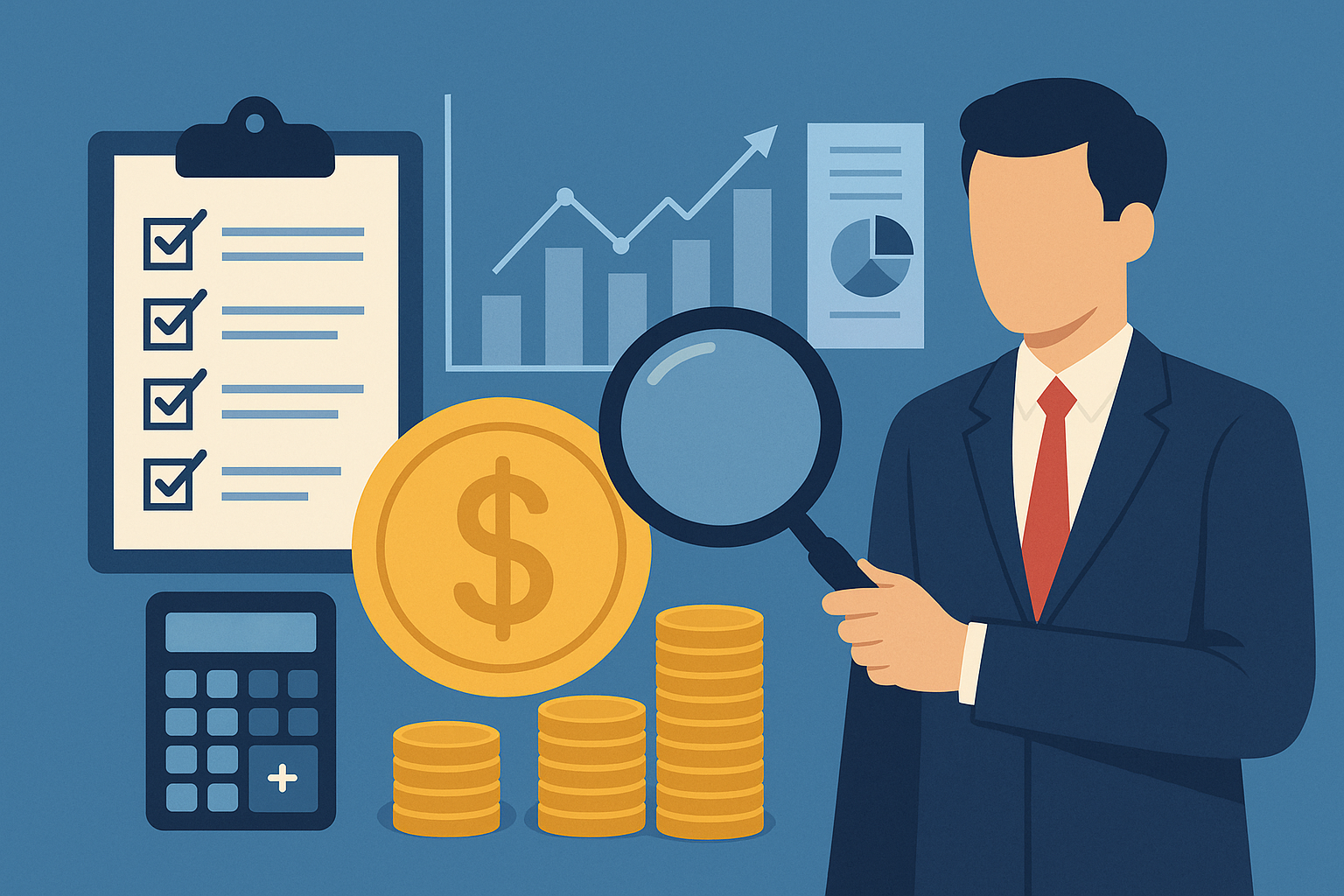What Every Business Owner Should Know About Asset Valuation

Alright, business dreamers and desk warriors of Australia, let’s talk about something a little less glamorous but hugely important: knowing the value of what you actually own. Whether you’re running a café, freelancing from your home office, or scaling your side hustle, asset valuation isn’t just for the financial wizards in skyscrapers. It’s for you, the everyday decision-makers, making choices with real-world consequences.
You don’t need to be a numbers person to get why it matters. When you know what your assets are worth, you make better calls—on loans, insurance, expansion, and when things get rocky (because they sometimes do).
Why Knowing Your Assets Is a Power Move
Assets aren’t just your computers, vehicles, or office space. They include everything your business owns that has value—your equipment, your inventory, maybe even that custom-built espresso machine that gets your regulars through Monday mornings.
Here’s why keeping track of asset value isn’t just good practice—it’s empowering:
- You know when it’s time to upgrade or offload.
- You avoid being underinsured or overcommitted.
- You get clearer numbers when planning for growth or applying for finance.
- You’re better prepared for tax time—because no one needs last-minute panic.
You’re not just doing this for admin’s sake. You’re doing it so your business is grounded in clarity. That kind of peace of mind? It shows up in how you lead.
Let’s Talk Wear and Tear (And Why It Matters)
The truth is, nothing lasts forever—not even that printer you’ve kicked into gear since 2012. Depreciation is real, and recognising it can actually work in your favour come tax season.
This is where a tax depreciation schedule Brisbane businesses often rely on comes in. It’s not just an accounting formality. It’s a practical, strategic tool that allows you to account for the gradual loss of value in your assets over time. That loss? It’s deductible. Which means your bottom line breathes a little easier.
Working with someone who gets the Brisbane market makes a difference. They understand what kind of deductions you're eligible for and how to structure them to support your goals. Because honestly, your energy is better spent on building your business than decoding depreciation tables.
The Unexpected Value of “Weird” Assets
You might not think much about the gold bracelet your business accepted as payment years ago, or the small stash of bullion bought when you were worried about inflation. But assets come in all forms, and some have surprising value—especially physical ones that hold steady in uncertain times.
For some small businesses, looking into gold for sale Brisbane can be more than just a curiosity—it can be part of an asset diversification strategy. Gold is tangible, relatively stable, and not tied to any single currency. For cautious investors or those looking to hedge against inflation, it has its place. Even just knowing its value in your overall portfolio can offer more clarity than you think.
Asset valuation isn’t about hoarding or buying blindly—it’s about understanding what you own, why you own it, and how it fits into your long-term goals.
A Little Reflection Goes a Long Way
Take a moment and think about all the tools, tech, resources, and even little oddities your business relies on. From your second-hand coffee table in the waiting room to your backup generator. It all adds up.
Still feeling a bit unsure about how this all connects to your day-to-day? Here’s a mini checklist:
- When was the last time you updated your asset register?
If you paused just now to remember if you’ve ever made one, no judgement—but now’s a good time.
- Do you know what’s covered by your insurance, and what it’s worth now?
Values shift, and your policy might not reflect that.
- Are you making the most of tax time?
If depreciation isn’t part of your strategy, you might be leaving money on the table.
- Are your investments aligned with your business goals?
Sometimes, a gold bar in the safe makes more sense than a risky crypto move. Know your comfort zone.
When you're also juggling financial challenges, it’s worth learning how asset value plays into your liabilities. Knowing what you have can actually make debt repayment feel less daunting—because you're not just staring at red ink, you're also seeing the tools that can help get you back in the black.
It’s Not Just Numbers—It’s Your Story
When you take stock of what you’ve built—literally and figuratively—it’s more than accounting. It’s a snapshot of where your business has been, where it’s headed, and how you plan to get there.
Maybe your desk is second-hand. Maybe your laptop’s held together with stickers. But these are your tools, and they’re part of your progress. Understanding their worth—without inflating or ignoring—grounds you in reality, not fantasy.
Because really, valuing your assets isn’t about becoming someone you’re not. It’s about backing the business you already are, with eyes wide open.